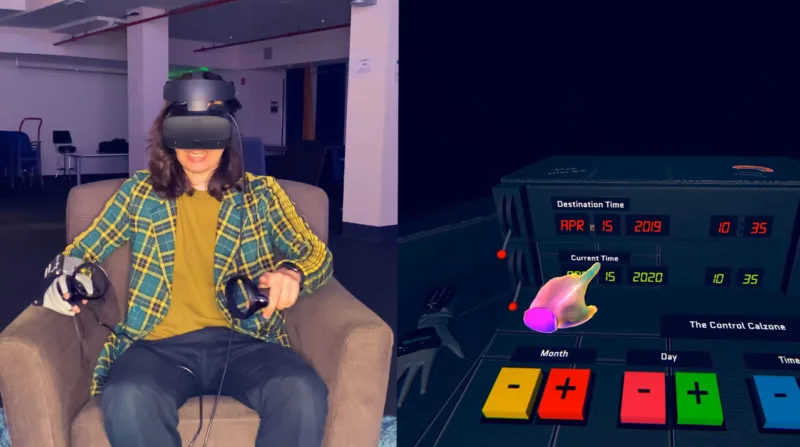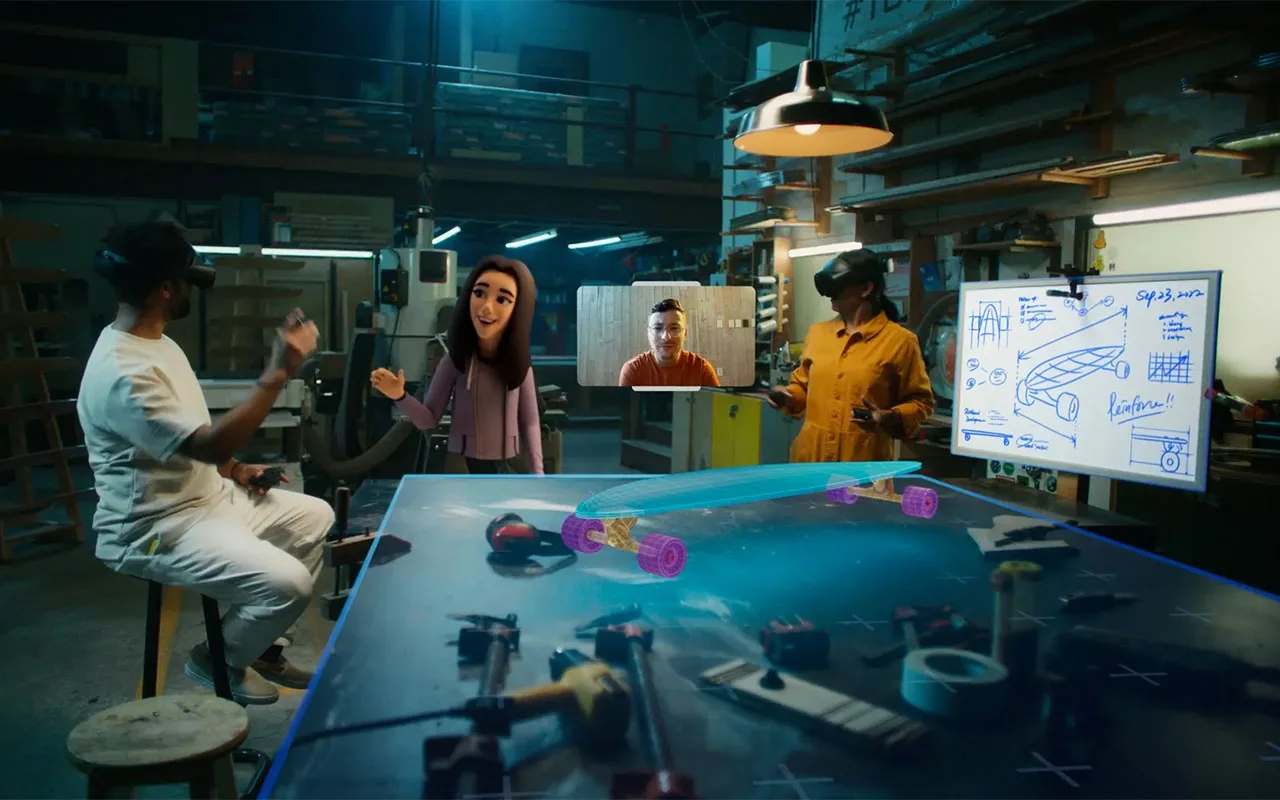Time travel and virtual reality are two different topics that have captured the imagination of many people for centuries. While time travel remains purely fictional, virtual reality (VR) has made significant strides in recent years and is now being used in various applications.
Time travel, as it is often depicted in science fiction, refers to the idea of traveling through time to different eras or periods in the past or future. Some people believe that time travel may be possible through space-time manipulation.
In contrast, others think that it may be achievable through the use of advanced technology or the discovery of hidden dimensions. However, there is currently no scientific evidence to support the idea of time travel. It is generally considered impossible according to our current understanding of the laws of physics.
Read More: The Metaverse: What Are NFTs, Metaverse, and DeFi?
Virtual reality, on the other hand, is a technology that allows users to experience immersive, computer-generated environments. VR systems typically include a headset that the user wears over their eyes and ears and sometimes hand-held controllers that allow them to interact with the virtual world. VR is often used for gaming, but it has also been applied in many other areas, including education, training, and therapy. Some people use VR to escape from the real world and experience alternate realities.
Time as a Way of Perceiving the World
Time is a fundamental aspect of our experience of the world. It is a measure of the duration of events and the intervals between them, and it is something that we constantly perceive through the passing of seconds, minutes, and hours. Time is also closely tied to the concept of causation, as we tend to understand events as occurring in a particular order and caused by other events that came before them.
In physics, time is typically considered a fundamental aspect of the universe and is closely related to the concept of space. The theory of relativity, developed by Albert Einstein, describes how space and time are intertwined and how the passage of time can be affected by the presence of mass and energy. According to this theory, time passes at different rates in different locations and under different conditions and is affected by factors such as gravity and velocity.
In many ways, our perception of time shapes how we understand and interact with the world around us. It influences how we plan and organize our lives and plays a role in our memory and sense of identity. Time is also a central theme in many works of literature, art, and music, and it has been a source of fascination and contemplation for philosophers and scientists throughout history.
The Theoretical Possibility of a VR Time Machine
While time travel remains purely fictional and is not currently possible according to our current understanding of the laws of physics, some people have suggested that virtual reality (VR) could be used to create the illusion of time travel.
In theory, it would be possible to use VR technology to create a simulated environment that allows the user to experience events from the past or future as if they were really there. For example, a VR time machine might allow the user to visit ancient civilizations, witness historical events, or see what the world might look like in the future.
However, it is important to note that such a VR time machine would not actually be capable of transporting the user through time or changing the past or future in any way. It would simply be a simulated experience that the user could observe and interact with.
It is also worth mentioning that the development of a VR time machine would likely require significant advances in VR technology and computing power, as well as a detailed understanding of the simulated events and environments. So, it is not something that is likely to be developed in the near future.
The Implications of the Virtual Reality Time Machine
If a virtual reality (VR) time machine were to be developed, it could have positive and negative implications.
On the positive side, a VR time machine could potentially be used for educational and research purposes, allowing people to experience and learn about historical events and cultures in a more immersive and interactive way. It could also be used for entertainment purposes, offering people the opportunity to visit and explore different eras and places in a way that would not be possible in the real world.
However, some ethical and practical concerns would need to be considered on the negative side. For example, it is possible that the use of a VR time machine could be abused or misused, leading to unintended consequences. There is also the risk that people might become too reliant on the simulated experiences provided by the VR time machine, potentially leading to a disconnection from the real world.
Additionally, it is important to note that a VR time machine, like any other form of technology, would have its limitations and would not be able to provide a perfect representation of the past or future. There would inevitably be some degree of error or distortion in the simulated experiences, and it would be important for users to be aware of these limitations and to approach the VR time machine with a critical eye.
The Existential Problem of VR
Virtual reality (VR) technology has the potential to create immersive, computer-generated environments that users can experience as if they were real. However, this ability to manipulate reality and create alternate worlds raises many philosophical and existential questions.
One such question is the extent to which experiences in a VR environment can be considered “real” or meaningful. Some people may argue that experiences in VR are not “real” in the same way that events in the physical world are, as they are simply simulations created by a computer. Others may argue that the subjective experience of being in a VR environment is just as real as any other experience, regardless of its physical basis.
Another related question is how VR technology could impact people’s sense of self and their relationship with the world around them. For example, suppose people increasingly rely on VR for entertainment and escape.
In that case, they may see the virtual world as more attractive or meaningful than the real world. This could lead to a detachment from the physical world and blur the boundaries between what is “real” and what is simulated.
These are just a few examples of the philosophical and existential questions that VR technology raises. It is important for people to be aware of these issues and to consider them carefully as VR technology continues to advance and become more widespread.



